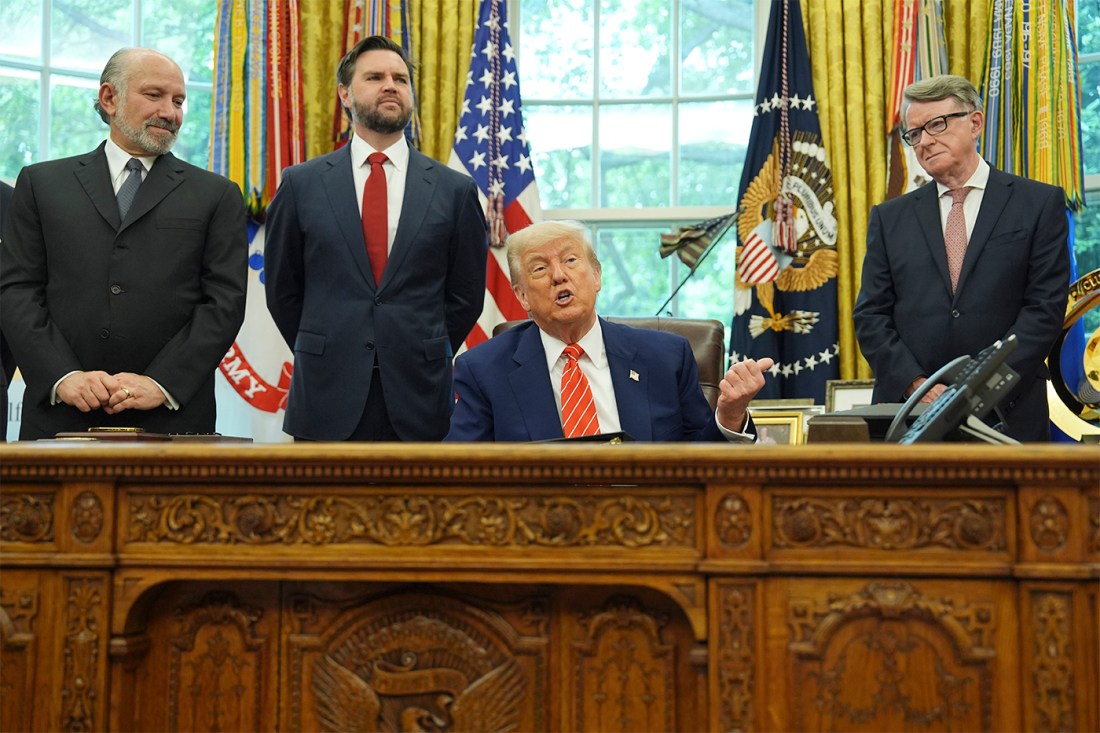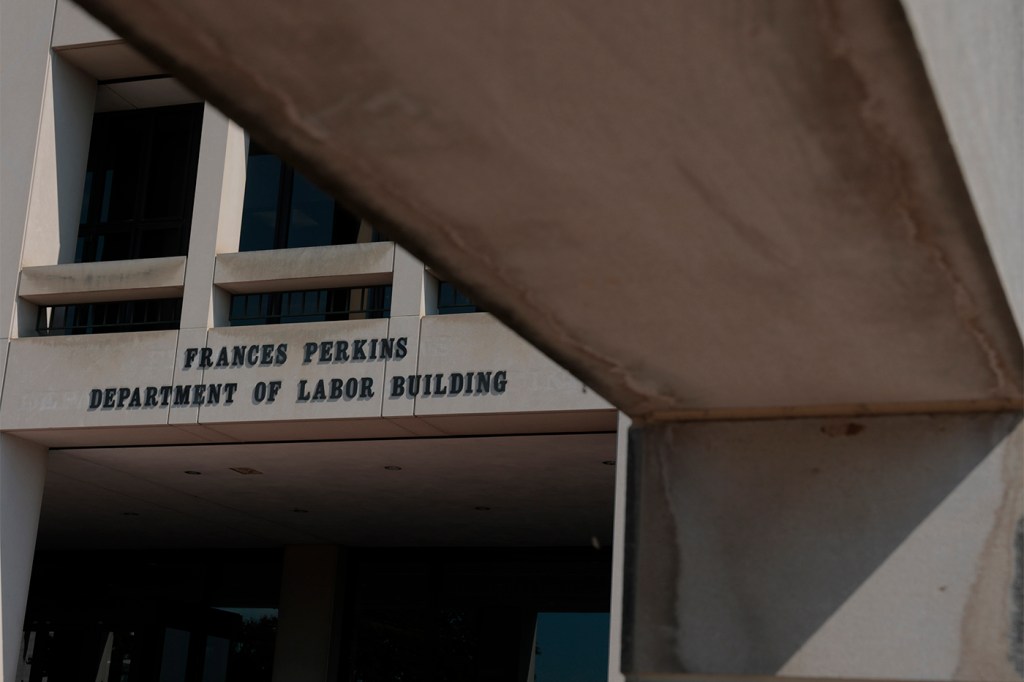UK signs first trade agreement with US since Trump’s ‘liberation day.’ These experts look at what it achieved
The deal could be more politically significant than economically for Britain, says professor Marianna Koli.

LONDON — After what U.S. President Donald Trump dubbed “Liberation Day,” the U.K. faced a 10% tariff on everything it exported into America with tariffs on cars and steel set at 25%.
In the aftermath of those newly applied tariffs last month, the two nations this week announced a bilateral pact that Trump called a “major trade deal.”
Priyan Khakhar, assistant professor of international business at Northeastern University in London, says the contents of the deal do not quite live up to that billing.
Trump’s blanket 10% tariffs on imports from countries around the world still applies to most U.K. goods entering the American market. But the 25% additional import costs on British-made steel — a sector that is currently struggling — has been scrapped and car tariffs have been heavily reduced as part of the negotiations between the two Western powers.
“Compared to six months ago, this isn’t really a trade deal as such,” Khakhar says.
“But if you were to compare this to just last week, then you could call it some sort of deal. It is certainly of benefit to U.K. car exporters, with Prime Minister Keir Starmer conveniently at the Jaguar and Land Rover factory for a photo opportunity after the announcement.”
Cars are the U.K.’s biggest export to the U.S., worth about £9 billion ($12 billion) last year, according to the BBC.
During his roll call of tariffs in the White House Rose Garden on April 2, Trump had placed import taxes of 25% on cars and car parts coming into the U.S. from Britain, on top of an existing 2.5% tariff.
The new agreement between London and Washington has seen that total figure cut to 10% on up to 100,000 U.K. cars — a threshold that matches last year’s export volume to the U.S. Any cars exported above that quota will be subject to the new 27.5% import tax.
The U.K. government expects the reduction in car tariffs to save “hundreds of millions” of pounds for Jaguar Land Rover, one of Britain’s biggest car manufacturers, alone. The firm, which has welcomed the deal, exports almost a quarter of its cars to the U.S.
According to Marianna Koli, professor of economics at Northeastern, the May 8 announcement may have more political significance for the future of the so-called “special relationship” between the U.K. and the U.S. than it does economically for Britain. The U.K. is the first country that the Trump administration has agreed to such a deal since his “Liberation Day” announcement.
“In political terms the deal is good news for the U.K. government,” Koli says. “Despite recent turbulence, the U.S. remains an attractive market for U.K. exports, and the U.S. deal is being used as evidence of the U.K. government’s geopolitical success.”
Starmer has looked to keep ties cordial with the current White House regime, both since Trump’s January inauguration and even before his reelection, having arranged a face-to-face meeting with him at Trump Tower in New York in the fall ahead of the presidential vote.
When Starmer was hosted at the Oval Office in February, he produced a letter from King Charles III formally inviting Trump for a second state visit to Britain.
Editor’s Picks
The diplomatic flattery ultimately did not spare Britain from facing fresh U.S. tariffs but the new agreement eases some of the pain for car and steel exports, with Starmer claiming he had put Britain “at the front of a queue” for a deal with America.
Reciprocally as part of the pact, London has scrapped a 20% tariff on U.S. beef exports and raised the quota allowed to enter into the U.K. from 1,000 metric tons to 13,000. A tariff on ethanol being sold into the U.K. has also been removed.
Koli points out, however, that the U.K.-U.S. agreement is not a trade deal in the traditional sense.
Only days before this agreement was sealed, the U.K. announced a comprehensive trade agreement with India that had been three years in the making. The accord will eventually lead to massive cuts on tariffs for British whisky, cars and other major exports being sold into the world’s fourth-largest economy. It has the potential to boost trade between the Commonwealth countries from £42 billion ($56 billion) a year currently to £67 billion ($89 billion) by 2024.
The U.K.-U.S. agreement is not of the same scale, Koli says, but instead is a “positive step” toward a closer trading relationship. The allies have spoken about holding further talks about the digital taxes the U.K. imposes on tech giants such as Google and Meta, while Britain is keen to protect its pharmaceutical industry from damaging tariffs.
Koli says the fact that the London Stock Exchange’s headline index (FTSE100) “barely moved” after the U.K.-U.S. deal was revealed indicates that the market does not expect it to trigger a big boost to growth.
“There isn’t an expectation in major U.K. businesses that this deal will make a major difference to the U.K. economy, even if it allows for limited relief in the recent tariffs,” she says. “It may be a positive start but it is not a traditional trade deal, and it is difficult to tell what the next steps may be.”
Business
-
 In chat with Northeastern President Joseph E. Aoun, graduate and trustee Spencer Fung says companies must ‘rethink constantly’ and establish an AI mindset
In chat with Northeastern President Joseph E. Aoun, graduate and trustee Spencer Fung says companies must ‘rethink constantly’ and establish an AI mindset -
 White House deal with NVIDIA and AMD continues to move U.S. away from free market capitalism, according to Northeastern expert
White House deal with NVIDIA and AMD continues to move U.S. away from free market capitalism, according to Northeastern expert -
 Northeastern experts say a lack of trust in government data could imperil businesses and the economy
Northeastern experts say a lack of trust in government data could imperil businesses and the economy








